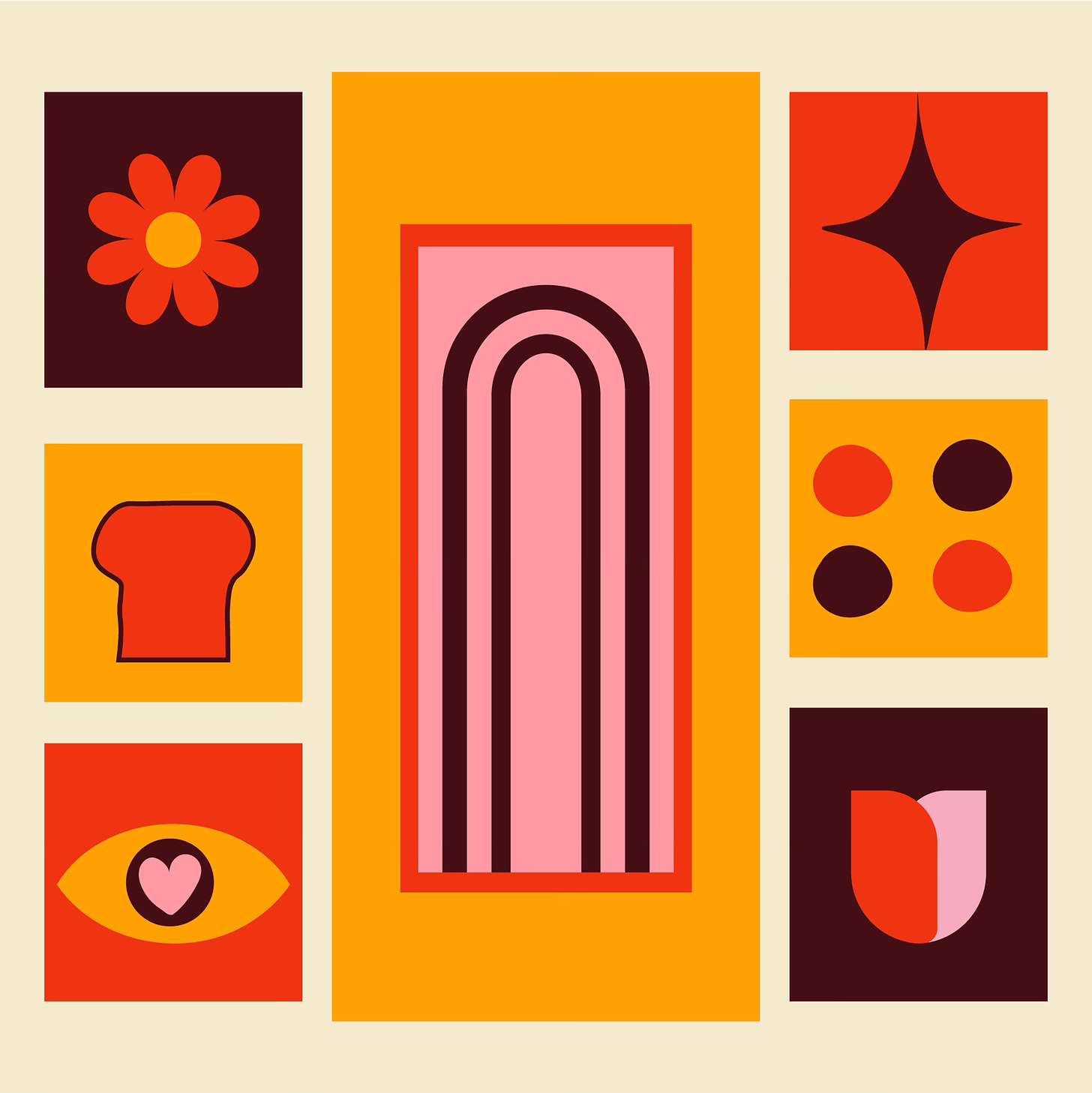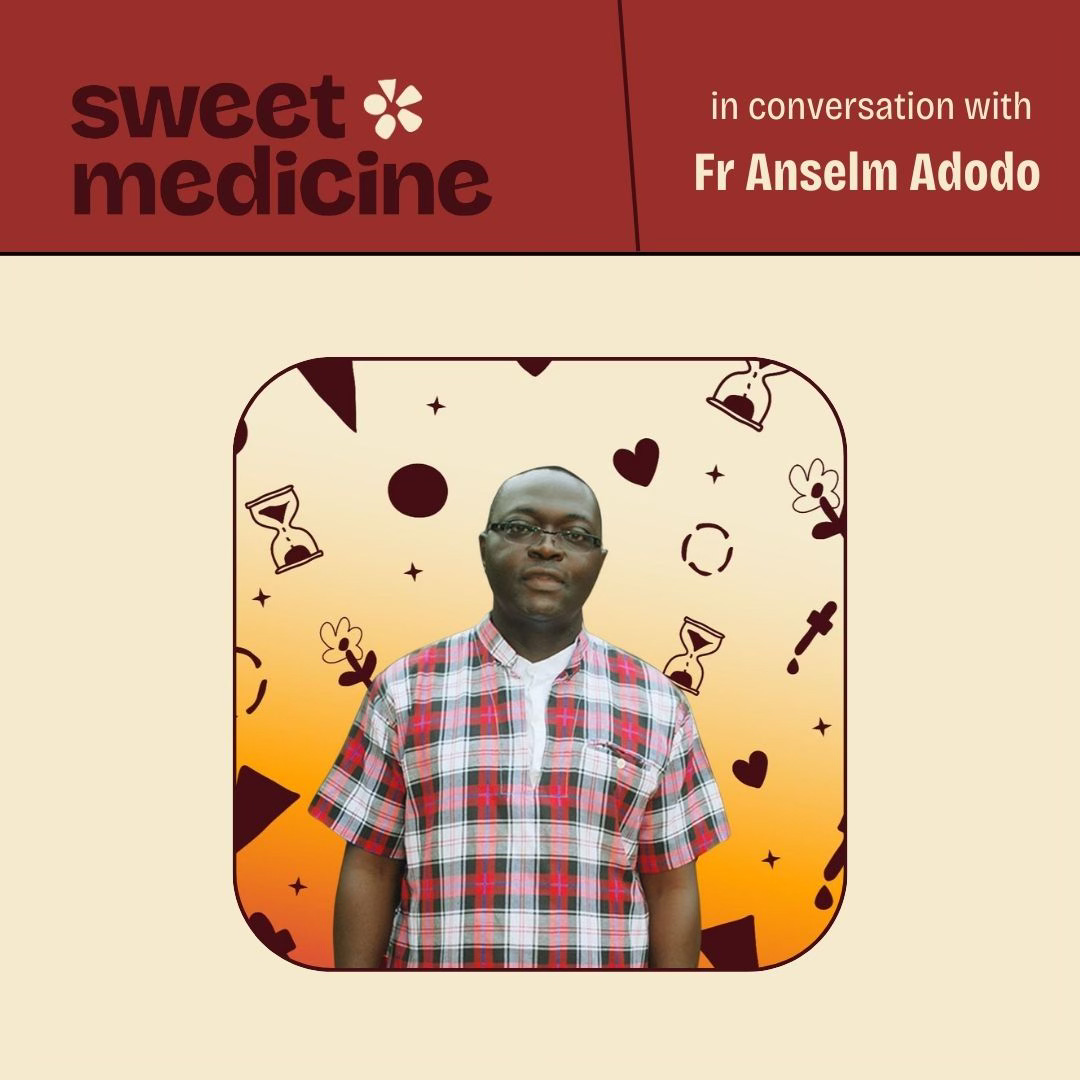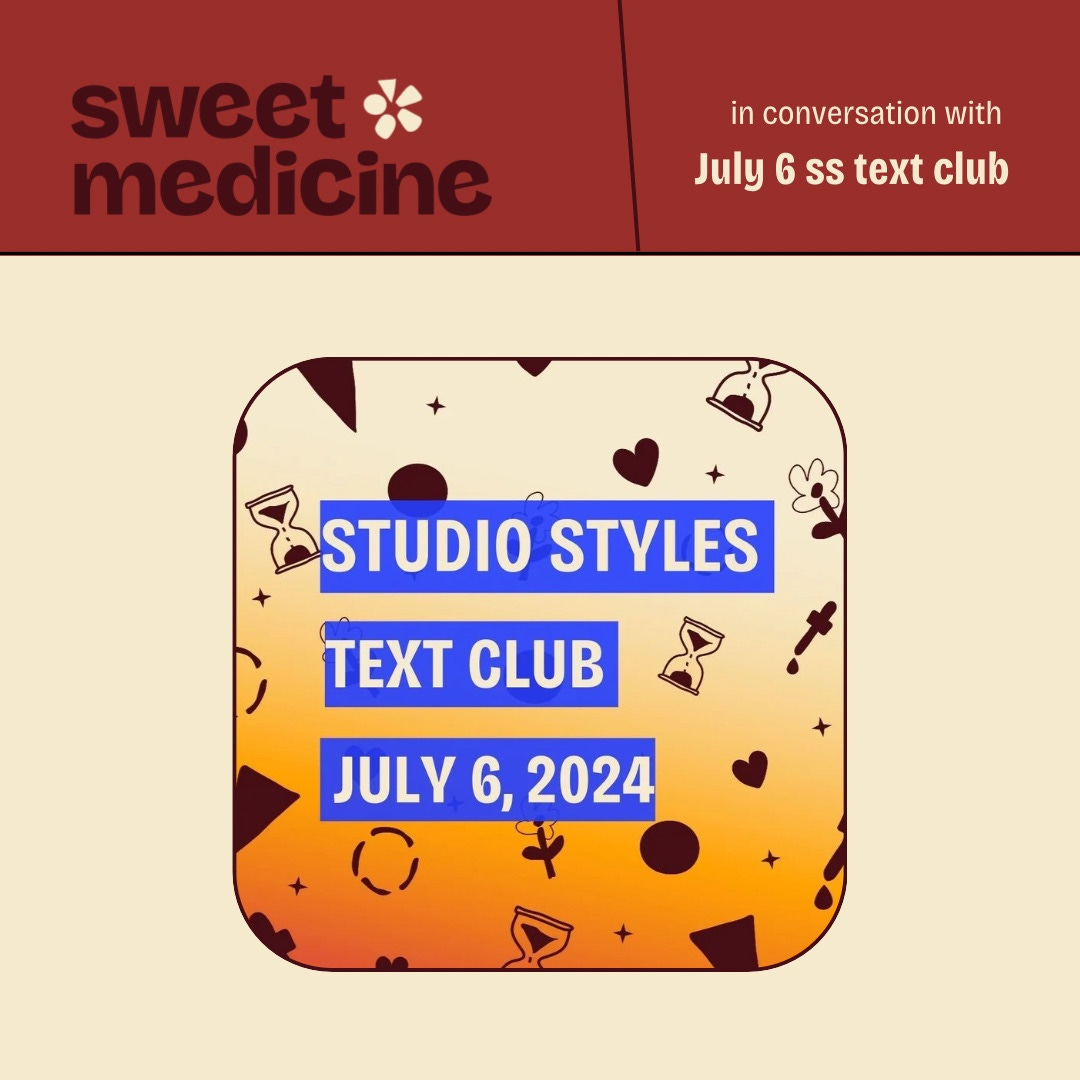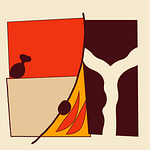Hello!
Immaculata, here. :)
This past week on the podcast, I shared an audio essay on Tuesday, a conversation with Fr Anselm on Saturday, and the July 6th text club meeting today. Listen to chapter 1 above and for the two conversation episodes, check here for links from wherever you listen to podcasts.
And while you’re at it, visit the Sweet Medicine website to see behind the scenes, research notes, more information about the project. Ose and I finalised the dashboard for the Nigerian Humanities Directory this week as well and you can find it here. For access to the data in the directory, email me at hello@studiostyles.org . Thank you Ose, Waji, Ugochukwu and everyone else who worked with me on putting the data together.
I also decided to put marketing efforts on ice until I’m done producing all the episodes. Everything don cost (December one-way flights cost 285k now?!) so I’m trying to see how I can stretch my resources. For now, please spread the word if you enjoy an episode. Word of mouth goes a long way.
1: Why the Humanities when people are starving? (listen above)
In 2020, Nigeria's president Muhammadu Buhari comforted kidnapped and released school boys in Kankara, Katsina State by telling them that "You children are very lucky. I hope you will be very careful your success in the future depends not on subjects like History and English but Technology." This derision for the humanities (and the idea that one can study only one or the other, and when faced with the choice, one must study only Technology) is a widely held sentiment in Nigeria by leaders and everyday citizens.
In this episode, I make a case for why 'Humanities and Social Sciences' or 'Technology and Natural Sciences' is a false dilemma. Interdisciplinary education can provide a more holistic understanding of society and foster critical thinking and communication skills in individuals. The Humanities are critical for the well-being of a diverse, democratic and postcolonial society like ours because they help us define what 'better' means for us.
00:00 Introduction to Sweet Medicine Podcast
05:20 Critique of Government Attitudes Towards Humanities
10:52 Interdisciplinary Approaches to Education
17:40 Personal Journey and Opportunities in Humanities
21:31 The Broader Impact of Humanities and Social Sciences
Read the full transcript here.
Fr Anselm Adodo: "My brother, drop the mask, come let's talk."
(link to listen on browser on Acast)
Fr Anselm Adodo is the founder of Nigeria’s leading plant medicine research laboratory, Pax Herbals. He is also a Benedictine priest at the Ewu monastery in Edo State and his work exeplifies a wide range of expertise spanning education, environmentalism, social work. His unwavering commitment is to inspire individuals and promote collaboration between academia and industry, paving the way for transformative advancements in healthcare.
In this conversation, perhaps more than any other in this project, we kept returning to how one’s material conditions affect their ability to see the bigger picture and tap into the healing that comes from meaning-making and re-storying one’s life, a task that requires vulnerability and integrity.
00:00 Introduction to Sweet Medicine Podcast
00:59 Father Anselm Adodo: A Journey of Healing and Discovery
09:27 Education and the genius of the local
14:40 How have Nigerians been taught to think?
17:58 The Impact of Capitalism on Nigerian Society
26:10 Social Innovation and Densu in Ayi Kwei Armah’s novel The Healers
30:31 Case Studies of Integrated Living in Africa
36:41 Thank you.
Full transcript is not yet live but will be on this page.
July 6 Text Club: Rethinking Fear, Affirming Life
(links to listen on browser on Acast)
Here is a conversation I had with six people who joined the Studio Styles text club meeting on July 6, 2024. This was the third week of discussing Paolo Freire’s Pedagogy of the Oppressed and on the call were Aaliyah Ibrahim, a writer and an international development practitioner, Gbope Onigbanjo, a consultant and researcher on international affairs, peace studies, and political economy, Chiamaka Dike, a journalist, Dede Israel, a writer and research analyst, Amanda Madumere, an ed-tech entrepreneur and arts administrator, Deborah Iyalagha, a writer and nursing student, and Keren Lasme, an artist and researcher and the only non-Nigerian on the call.
We began by talking about the passage in Freire’s book where he wrote that “the struggle for a free society is not a struggle for a free society unless through it an even greater degree of individual freedom is created.”
From there we discussed how the force of one’s normative environment makes freedom from that environment look like an illustion or an impossibility. But as is echoed throughout this podcast, how things have been isn’t all they can be or how they have to be.
And as with all our club meetings, the conversation moved from the texts and into our everyday lives to explore how we can apply the ideas to action in our lives, what changes we’d like to see in the world and how we can contribute to making that change. We went on to discuss what fear is good for, feeling the fear and protesting anyway, #EndSARS and the question of whether Nigeria is a psychopathic entity not worth dialoguing with, the intelligence of plants and the potential of spirituality and plant medicine as transformative tools of change. It was from this conversation that I picked up the practice of using ‘life-affirming’ as a metric by which I now assess my actions and beliefs.
01:10 Exploring Paulo Freire's Pedagogy of the Oppressed
06:35 Challenging Workplace Norms and Individual Freedom
12:03 The Limits of Dialogue in Liberation
14:58 Navigating Fear in Society
18:46 Imagining a Safe World
29:13 Life-Affirming Practices/What is the 'Human'
34:08 Spirituality and Plant Medicine as Tools for Change
Full transcript is not yet live but will be on this page.
Follow the Sweet Medicine podcast on
I’d love to hear from you in the comments section.
















Share this post